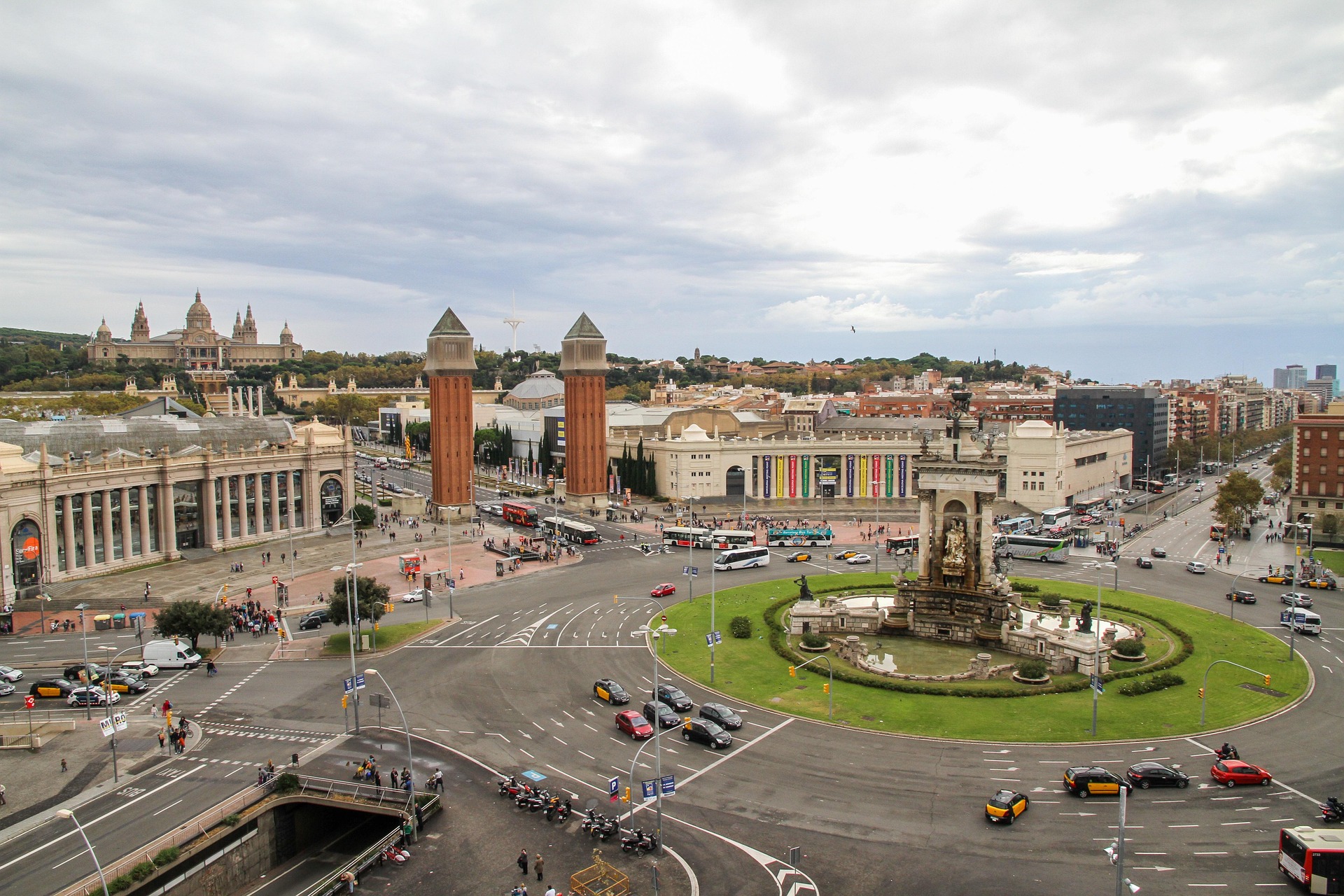Seven Reasons to Study in Spain

Do you know that Spanish is one of the most spoken languages in the world? Over half a billion people speak Spanish fluently, according to the 2021 report on Statista. And if you’re looking to start studying in Spain, you will have to join those 500 million people.
Spain is one of the most flourishing nations worldwide. Not only does it have strong economic ties with multiple countries, but it also has some of the best educational institutes in the country. Finding the perfect educational institute with the right qualities, such as a school, seems impossible. But we’re here to tell you that studying in Spain could be a fantastic choice!
7 Reasons to Study in Spain
When people have to move out of their comfort zone, they always tend to develop their adaptive capabilities, while learning a handful of new skills. Learning abroad allows students to make new friends, interact with diverse people, enjoy immersive experiences and expand their existing knowledge.
While studying abroad can allow you to enrich your current resume, it can open doors to international employment opportunities as well. You can study in Spain and learn about another culture while getting an incredible opportunity to get a world class education.
World’s Finest Universities
Spain is home to many internationally renowned universities. The schools and educational institutes in Spain also provide progressive learning opportunities. Students learn about the changing times and all the dynamic elements that contribute to the society we live in today.
Furthermore, all world-famous universities have cutting-edge technology and state-of-the-art facilities to improve students’ learning experience. A few top universities include:
- University of Barcelona
- Pompeu Fabra University
- Autonomous University of Madrid
Tolerable Climate Conditions
Spain is also a tourist hotspot, with the climate being especially nice for people coming from different parts of the world. It’s located in the most southern region of Europe and has highly hospitable climate conditions year-round. A common misconception that people have is that Spain experiences cloudy and damp weather every day. The truth is that the temperatures are tolerable, and the sun shines for over 300 days a year. The country offers one of the best climate conditions to live in. You can study in Spain without spending too much on trying to live a specific lifestyle year-round.
However, some parts of Spain experience constantly changing weather conditions throughout the year, making them the perfect travelling destinations when you’re on a break from studies/work.
Chance to Learn a New Language
If you only spoke English before and you’re planning to move to Spain, congratulations! You could become fluent in Spanish very quickly, as you get the chance to engage directly with the native speakers in the country. You can become a native in no time and improve your resume by listing Spanish as a plus one to your English language skills.
Sports Celebrations
You will even get the chance to engage in local sports when you’re in Spain. You don’t necessarily have to participate to have a good time though. Instead, you can go and watch games, invite friends over, and become a sports fan to celebrate sports festivals with locals. Football is also the most popular sport in Spain.
Other than that, it’s home to a few popular basketball, tennis and international football players. The country is also very popular for its many famous events such as Summer Olympics and FIFA World Cup.
Experience Spanish Cuisines
When in Spain, you can try the most diversified eateries from around the world. Spanish cuisine alone will be incredibly fun to try, as it takes inspiration from plenty of other types of famous cuisines. You can try out a number of dishes, explore the local food street and give your taste buds the trip of a lifetime. You might not be familiar with over half of the Spanish cuisines and foods. You can start with simple dishes such as Spanish omelettes and paellas, then slowly move to cured meats, chorizo and gazpacho.
Immerse in Cultural Heritage
You will find numerous museums and cultural landmarks across Spain. From the War of Spanish Independence to the Spanish “Golden Age,” you can learn about this centuries old civilization that is still standing strong.
Some of the most important events in human history started and ended in Spain, to the point where the country itself is a reminder of countless historical events. Simply put, by studying in Spain, you can give yourself the chance to learn about a unique culture that was responsible for many of the best parts of Western Civilization.
If your studies relate to inspecting cultures, finding similarities and researching monuments, Spain could be the place to further specialise in that field. Some of the most famous monuments are also present in Spain, including:
- Temple of Debod
- Columbus Monument
- Alhambra
- Guggenheim Museum
Better Safety and Security Standards
To study in Spain is to adopt an enriching and peaceful lifestyle. It’s among the safest countries on the planet, and you don’t have to take our word for it. In fact, the UNODC report shows that it’s the 6th safest country in the world and the 4th safest country in the European Union. You can enjoy an outdoor life just like in any other Mediterranean country and also can walk around the city carefree.
Conclusion
Progress-oriented students require opportunities to improve their learning experience. Spain isn’t just home to a few excellent universities and undergraduate schools. It’s an attractive tourist destination that keeps its doors open to all travellers and visitors worldwide.
While you study in Spain, you can immerse yourself in the country’s unique culture. Spaniards are welcoming and hospitable and students can get an education without feeling like they are outsiders. It’s easy to arrange a trip and stay. Plus, the living costs are reasonable if you choose the right city based on your budget.
Reference Links:
I spent a fall semester in Valencia
Finding the Valencia program was fate. I still feel like it's a rare, undiscovered secret that only I was privileged enough to explore and call home. It fulfilled a combination of desires for me. I knew I wanted to learn Spanish, and had boiled it down to Spain because unlike South or Central America, I'd have access to traveling throughout Europe and North Africa.
From there, I realized I wanted a city of a decent size. Madrid and Barcelona were the other two Spanish cities for which programs were offered. I'd been to Madrid and enjoyed it very much, but I didn't like that it was so far inland. I heard Barcelona was amazing, but its main language was Catalan.

Then I came across Valencia, Spain's third largest city, located east on the Mediterranean coast. With about 800,000 people, it was an ideal size for being able to experience that large metropolitan vibe while still being able to run into familiar neighborhood faces. Valencia is also the birthplace of paella, and boasted some of Spain's best cuisine (in my humble opinion)
I knew I wanted to learn Spanish
The littoral outlet for well-heeled Deià, a village that has been home to Mick Jagger, Andrew Lloyd Webber, Richard Branson and poet Robert Graves who is buried there, Cala Deià may be small (200m wide), far from sandy beaches but the water is crystal clear, the rocky outcrops imposing and the atmosphere convivial.
A mixture between the fresh caught seafood from the adjacent sea and the best rice dishes, as well as the sweet delectables like buñuelos and the sugary almond treat turron.
But dessert for me tended to be fruit, as I took advantage of the region's incredible bounty (the Valencia orange being one of the most delicious fruits I've ever had -- that perfect balance between sweetness and citrus acidity).
My plans for the near future
As of now, I am set to graduate in June from CUNY Hunter College with a bachelor's degree in Media Studies. I've already made plans, while not yet fully developed, to take some time off after undergrad and return to Spain.
I am going to try and find a job or internship somewhere in the vast field of media. My mind's run agog with possibilities: finding a job or internship, teaching English, or even enrolling in a Spanish university for graduate school. In a perfect world, I would be a foreign correspondent based in Madrid for The New York Times. favourite beach, Cala Deià, can be found here, one of the most bewitching inlets on Mallorca’s entire coastline with the clientele to match.

.webp)


















.webp)





